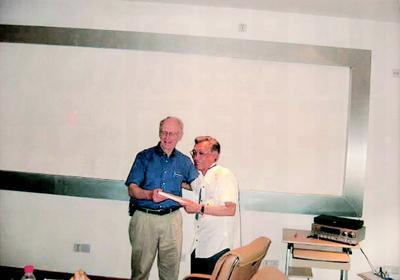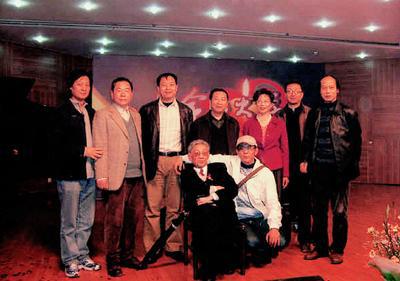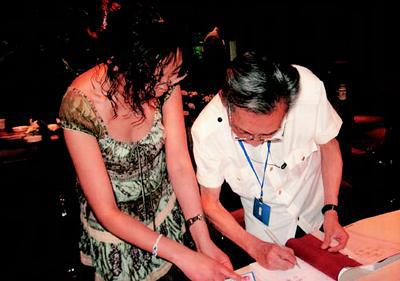Dream of Red Mansions in English Abridgement
2009-05-11SangYichuan
Sang Yichuan

It was in the early 1990s when I was a graduate at the Asia Studies Institute under La Trobe University in Melbourne, Australia that I first learned that Professor Huang Xinqu had made an abridged English version of the Dream of Red Mansions, a classical Chinese literary masterpiece by Cao Xueqin (1715-1763). I came back to China during my summer break and went to see Professor Huang at my alma mater. It was a fine afternoon after a short rain. Cicadas sang madly. Over a cup of jasmine tea, we chatted about things that had happened since we last saw each other. Then Professor Huang mentioned that the shortened English version of the Dream of Red Mansions, his labor of years, had just been published by Beijing Foreign Languages Teaching and Research Press. Naturally we turned to the topic of book translation. We agreed that it was a mission impossible to render a Chinese classic novel into English. As his student, I congratulated him on his accomplishment and expressed my admiration.
I brought a copy of the abridgement back to Australia and shared it with a few professors of Chinese literature at the institute. Their responses to the shortened version were unanimously positive. For western readers, they commented, this abridged version served as a convenient introduction to ancient Chinese literature. It could save a lot of time and energy. Undergraduates and graduates at Australian universities who majored in Chinese literature could use it as a paradigm for further research.
There have been more than 20 unabridged English translations of this Chinese literary masterpiece, but Professor Huangs abridgement is the only English abridgement in the world.Compared with some unabridged English translations, this abridgement excels in recreating the cultural ethos in English and the literary transition from the source language to the target language is perfect, thus enabling foreign readers with different cultural backgrounds to appreciate the novel with greater ease.

The English translations have not been very successful with western readers. The original novel embraces a great variety of aspects of Chinese culture. A literary masterpiece authored in the agricultural phase of an ancient civilization, the novel presents challenges in ideology and aesthetics and plots to western readers. Western readers may fail to understand why a simple romance can be so spiritually torturing.
What makes English translations hard to access is that the original novel is fully characterized by the ambiguity of the Chinese language. The poems hint at the fates and personalities of characters in the novel. The symbolic meanings of these words and images are hard to deliver into the target language. For example, the names of the characters have significance. Some translations put 黛玉, the heroine of the romance, as black jade, 鸳鸯 as faithful ducks while some newer translations just present transliterated names, giving up the poetic beauty and literary allusions in these names.

In contrast, Professor Huang Xinqus abridgement blazed a new trail. Linguistically, it is easy to understand. The narration appeals to both the refined and the popular tastes. Some key Chinese words that reflect the profound Chinese culture are smartly translated into English, delivering the charms of the Chinese culture to western readers.
The Abridgement Enjoys Popularity
Shortly after it was released on the market, China Books, a bookstore in China Town in Melbourne, Australia, had the book on its shelves. The proprietor told me that it sold well. Schools were major buyers of the book. Sometimes a school would buy ten or twenty copies. It is the earliest evidence of the overseas popularity the book has enjoyed.
A few years later Purple Bamboo, an American publisher, produced an overseas edition of the abridgement, which was distributed by China Books Company based in San Francisco. However, pirated editions of the abridgement soon appeared in America, Canada and Australia. Some pirate publishers even advertised their businesses. I collected evidences and handed them to Professor Huang.
Professor Huang comments that he is greatly pleased that the book sells well in western countries and more western readers now know the Chinese classic novel.
At present, this abridgement is a must-read on book lists at ten universities in European, American and Australian universities for students who study Chinese language and literature. Professor Huang is one of the few Chinese scholars whose English works are directly used in western universities. □
